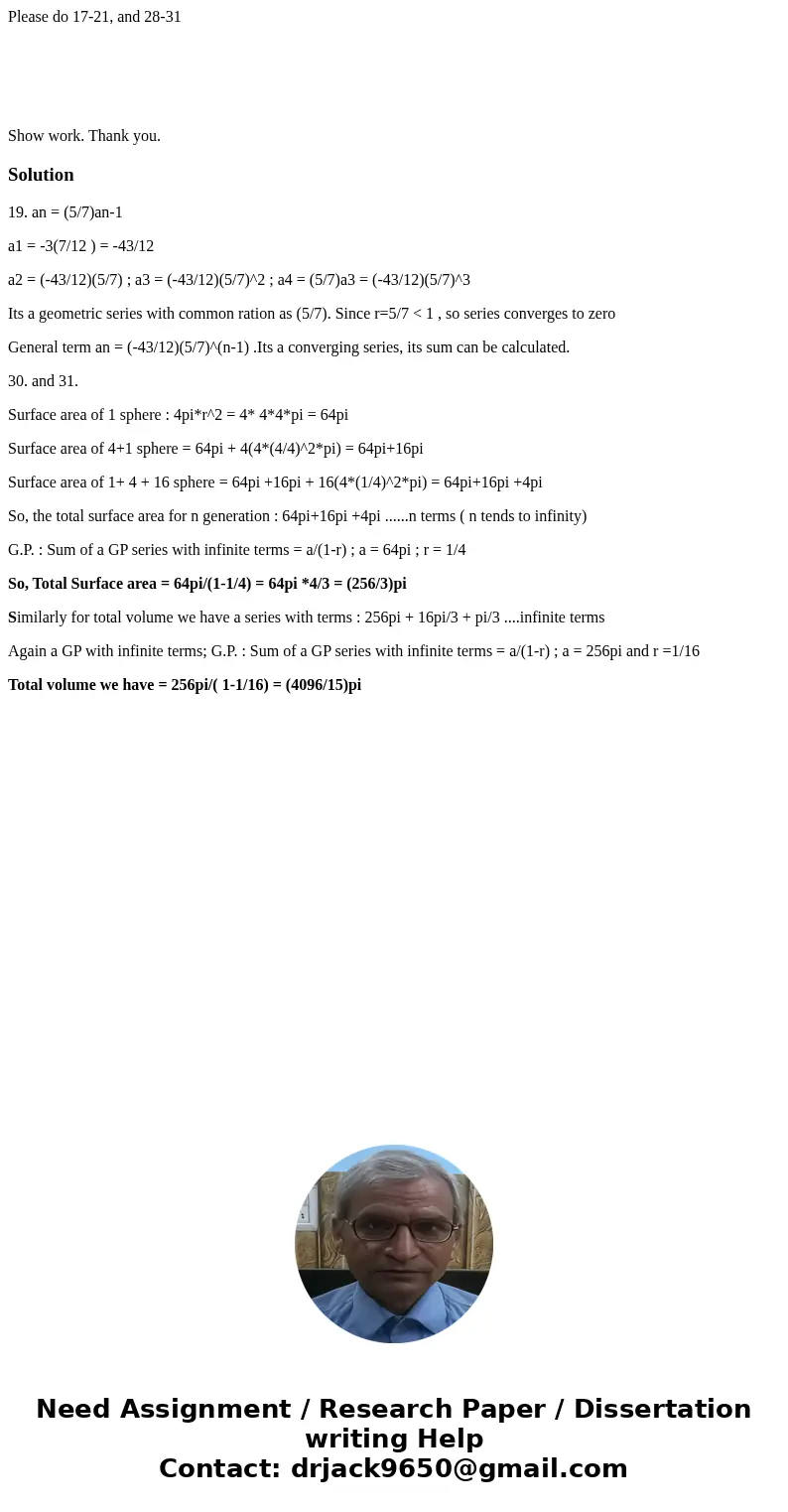Please do 1721 and 2831 Show work Thank youSolution19 an 57
Please do 17-21, and 28-31
Show work. Thank you.
Solution
19. an = (5/7)an-1
a1 = -3(7/12 ) = -43/12
a2 = (-43/12)(5/7) ; a3 = (-43/12)(5/7)^2 ; a4 = (5/7)a3 = (-43/12)(5/7)^3
Its a geometric series with common ration as (5/7). Since r=5/7 < 1 , so series converges to zero
General term an = (-43/12)(5/7)^(n-1) .Its a converging series, its sum can be calculated.
30. and 31.
Surface area of 1 sphere : 4pi*r^2 = 4* 4*4*pi = 64pi
Surface area of 4+1 sphere = 64pi + 4(4*(4/4)^2*pi) = 64pi+16pi
Surface area of 1+ 4 + 16 sphere = 64pi +16pi + 16(4*(1/4)^2*pi) = 64pi+16pi +4pi
So, the total surface area for n generation : 64pi+16pi +4pi ......n terms ( n tends to infinity)
G.P. : Sum of a GP series with infinite terms = a/(1-r) ; a = 64pi ; r = 1/4
So, Total Surface area = 64pi/(1-1/4) = 64pi *4/3 = (256/3)pi
Similarly for total volume we have a series with terms : 256pi + 16pi/3 + pi/3 ....infinite terms
Again a GP with infinite terms; G.P. : Sum of a GP series with infinite terms = a/(1-r) ; a = 256pi and r =1/16
Total volume we have = 256pi/( 1-1/16) = (4096/15)pi

 Homework Sourse
Homework Sourse